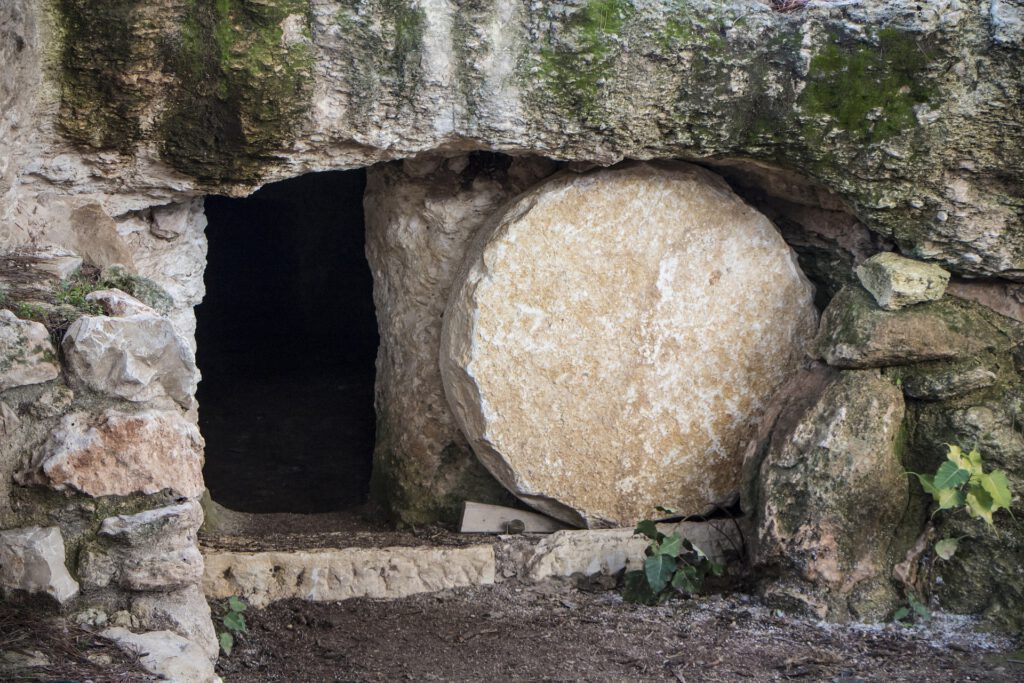Is it sane to believe in the resurrection?
Or is the whole Christian festival of Easter based on a foolish hope, an insane desire that something impossible happened back in the first century and it somehow helps us in our lives today?
If you read the atheist writers today, you would certainly think so. Richard Dawkins, the sharp-witted atheist professor from Oxford University, said in a recent debate with a Christian professor, “It all quite really comes down to the resurrection of Jesus. It has a fundamental incompatibility [with] the sophisticated scientist… It’s so petty, it’s so trivial, it’s so local, it’s so earth-bound, it’s so unworthy of the universe.”
The New Testament gives us perhaps a surprising answer to the question “is it insane to believe in the resurrection?” It says ‘yes’ – if the resurrection didn’t take place.
The plausibility of the resurrection is important. It is not a fanciful notion that is worth holding even if it didn’t occur.
In the first letter to the Corinthian church, the writer (the apostle Paul) makes it plain that he thinks it is crazy to be a Christian, to be a believer in Jesus Christ as the living Son of God and Lord of everything, if this Jesus did not rise from the grave after his crucifixion. He writes, “And if Christ has not been raised, our preaching is useless and so is your faith” (1 Corinthians 15:14).
The Christian faith stand or falls on this. Paul doesn’t say, well, let’s just put the resurrection to one side and get on living morally as Christians, doing good deeds and being polite to each other. Rather, he calls a spade a shovel: “If only for this life we have hope in Christ, we are to be pitied more than all men” (1 Corinthians 15:19).
Before you summon up pity by the parish-ful, consider the implications of the Apostle’s position. It means that the plausibility of the resurrection is important. It is not a fanciful notion that is worth holding even if it didn’t occur; rather, it is something that history, philosophy and psychology ought to comment on. Thankfully, all of those disciplines do just that.
History tells us at least three significant things. First, we have multiple, independent and early accounts that the tomb in which Jesus was laid was found to be empty. You can read them because they are now compiled in what we call the New Testament section of the Bible. But remember, these are historical records that anyone can examine, regardless of their beliefs.

I have to add, with embarrassment here, that one of the reasons for believing these are historically accurate records is that the reports of the empty tomb are given by women. And in the ancient world, no one trusted the accounts given by women! If you were making this story up rather than reporting what really happened, you wouldn’t have given women such an important role. Outrageous, but true.
Second, in these independent records known now as the New Testament, there are accounts of many people seeing Jesus alive again three days after his burial. And some of these accounts were written while those witnesses of Jesus were still alive so they could easily have been checked and denied. Even the ardent sceptics take the historical nature of the resurrection appearances seriously. People thought they saw Jesus alive again—make of that what you will, but it is historically significant.
And third, history has to account for the rise of Christianity, something that makes most sense if a resurrection-style event took place to ‘shock’ the followers of Jesus into action. Something happened back then in the first century, at the first Easter, that those early Christians witnessed and that gave them reason to tell others about it, despite their fears and insecurities.
When we turn to philosophy, the figure of David Hume looms monstrously over the idea that a miraculous event such as a bodily resurrection took place. But, as philosopher John Earman has demonstrated in his book Hume’s Abject Failure, Hume does not allow any of the ‘background information’ about events to affect their likelihood of occurring. When you allow a piece of background information such as ‘God exists and is involved in the world”–a view which the majority of human beings still hold to be true—it becomes rather simple to believe that an event such as resurrection from the dead is plausible. You would still want to know it happened (that’s where history comes in), but the prior belief that God exists means there are no philosophical barriers in the way.
And third, we turn to psychology. Some theorists of human behaviour want to claim that the resurrection is just another example of wish-fulfilment by mortals. We fear death, so we are predisposed to believe that someone could conquer it and we would worship such a being.
I agree. We are afraid of death; we do wish to survive it and spend most of our time trying to; and we would fall in humble adoration before anyone who could help us do so. That’s why I’m a Christian, because I believe that in Jesus Christ, that wish is fulfilled—actually, in history, not simply emotionally.
When I add together the history, the philosophy and the psychology, belief in the resurrection of Jesus seems reasonable, defensible and very attractive. It would seem insane not to at least give it serious thought.
Greg Clarke is a co-director of the Centre for Public Christianity.
This article first appeared on ABC Online Opinion and Analysis.